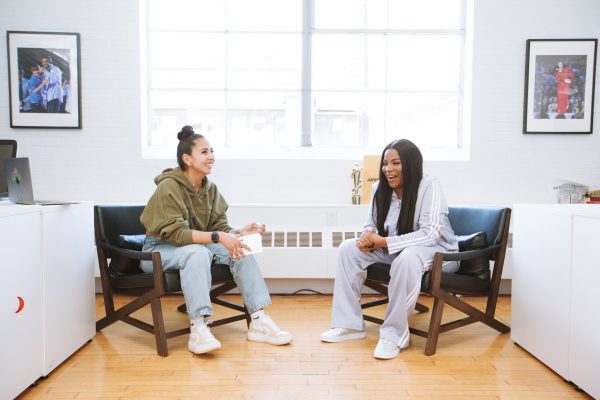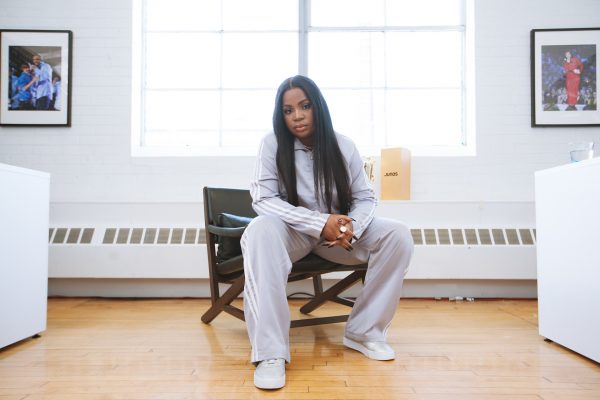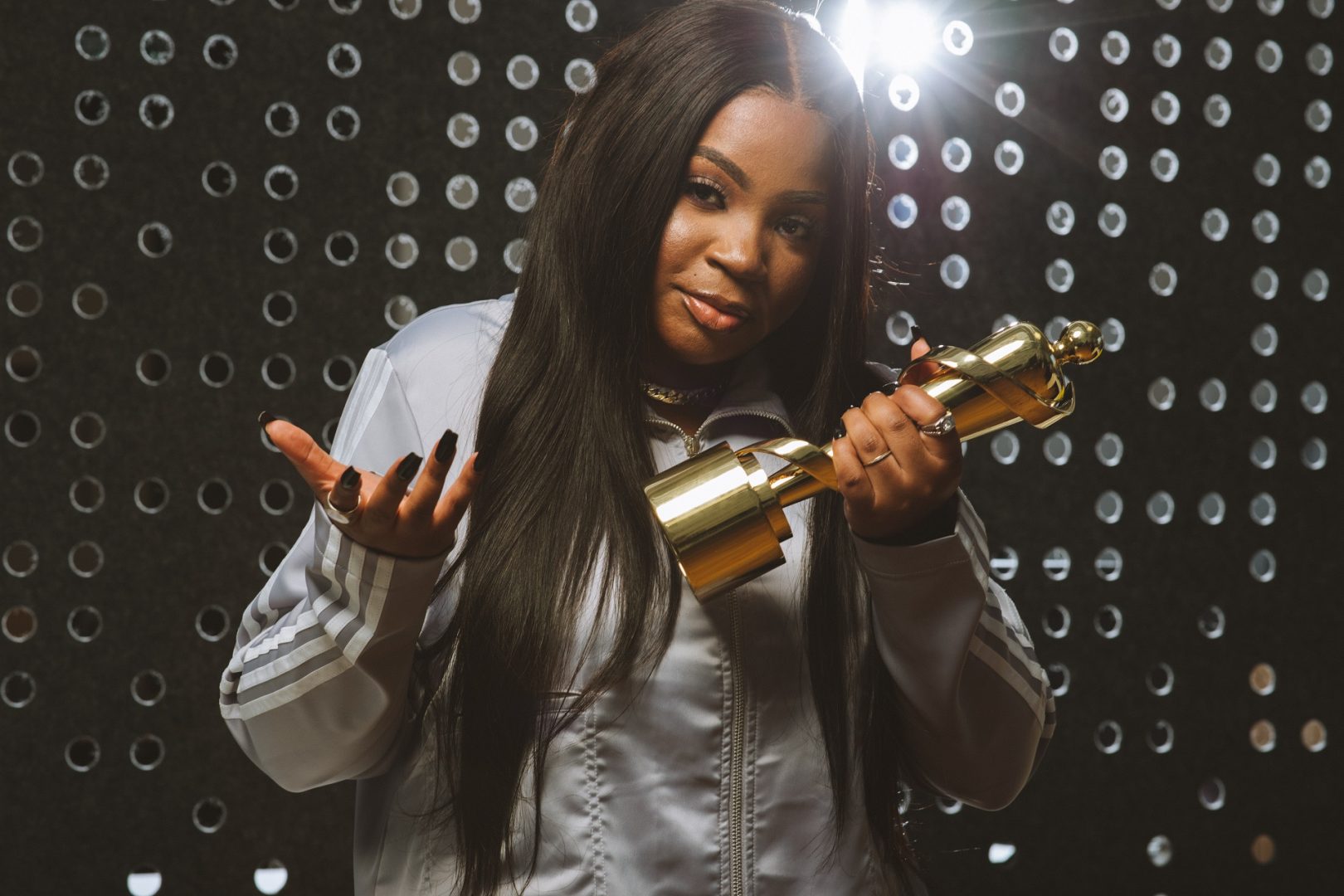By Meghan Yuri Young Photography by Max Power To some, Savannah Ré’s rise to fame may appear to have happened overnight. But the R&B singer has been making deeply personal and meaningful music for much…
By NowPlayingToronto
By Meghan Yuri Young
Photography by Max Power
*June 2023 Update: While our interview with Savannah focused on the 2022 JUNO Awards, her insight into the Canadian music industry, her journey, and her trajectory are all inspiring. Give our Q&A a read and then head over to our music listings to find an event that will be music to your ears.*
Three-time JUNO Award winner Savannah Ré is always ready to celebrate. When we spoke to her, she had already accepted one JUNO Award virtually and was preparing for her second nomination. Since then, her statuette collection has grown to three JUNOs.
Although her rise through the industry may seem meteoric to fans who are still getting to know her, Savannah has put years into her craft. It’s been a journey that’s included coming up in a Toronto R&B generational gap that left her to figure out a lot on her own, and eventually, surrounding herself with peers who continue to help Savannah reach her full potential.

Meghan Yuri Young: You released your first EP in 2020 and you were immediately nominated for a JUNO Award in 2021. In 2022, you were up for another nomination. But you’re still considered relatively new on the scene. Can you tell those who are still discovering your music about yourself?
Savannah Ré: Absolutely. I’m sure there are a lot of people that don’t know me! I’m just getting started. So, I am from Scarborough — originally by way of Montreal — which a lot of people don’t know.
I’ve been making music for a really, really long time. My first project, I scrapped the whole thing! I was like, “No, I hate this.” And then [my debut EP], Opia, was like, “All right.” It took about three years to make. It was my whole life, up until that point, put into eight songs. To think about that is so crazy, so nerve-wracking. So, I’m one project in, but there’s a lot more coming. I’m a lyricist, I’m a songwriter, I’m an artist.
MYY: It seems as though you’ve been surrounded by incredible people in the music industry — just your husband, YogiTheProducer, alone. Did that contribute to a sense of, “I need to produce something that the people around me would be proud of”? Was it pressure or more your personality that made you wait until you had something like Opia?
SR: You know what, that’s a really good question. It’s definitely all of the above, you know what I mean? I had to think for a second, “Did Yogi ever put pressure on me?” If anything, us starting to work together made things easier. I feel like we speak the same language, musically. I don’t ever really have to say much. We can get to the sound that we want very quickly.
I’m a perfectionist. And although I get people saying things like, “Oh, it’s great,” I’m sure the music I made before Opia was probably great, too. I can’t even remember it now.
MYY: You don’t keep the music?
SR: I keep it, but I don’t listen to it. I don’t listen to myself. Like, my nail tech came to my house to do my nails and I said, “Put on an R&B playlist.” I came on three times.
MYY: How did that feel?
SR: Every time, I was like, “Alexa, next!” Now that I’ve been disconnected from [the EP] for a while, since 2020, I can go back and listen to it and not solely feel those visceral emotions attached to it. But when I freshly made it, I was just like, “What about the mix? What about that note?” I’m a crazy person when it comes to that.
MYY: You care.
SR: I care a lot. I care too much. But it’s important to me because I wanna make sure that every word, every note, everything about [my music] is intentional. That’s how I communicate.
MYY: I think that’s why you went from releasing your first EP in 2020 to being nominated and winning your first JUNO in 2021, your audience and your peers must have seen that and felt that. Speaking of the JUNOs, how did it feel winning and the Awards being virtual that year?
SR: I said, “Y’all are not taking this moment for me” — whether the laptop is buffering or not. We were in New York. I was shooting a bunch of stuff. I think, at that time, we were shooting with Spotify. So, we were in a hotel room. It was my manager, the stylist at the time, my husband. That was it. I did my own makeup and my own hair.
I tried to manage my expectations. Everybody who was nominated was so amazing. I would’ve been excited for anybody that won, you know what I mean? So, I really wasn’t sitting there prepared. I wrote my speech while I was waiting on-camera. Everyone was like, “Make sure you write a speech!”
MYY: Are you grateful you wrote a speech?
SR: I was like, “Oh my God.” It ended up being a natural reaction because I really didn’t expect it. I was sad it was virtual, but I also kept saying to myself, “Don’t be ungrateful. You were nominated for your first project. You got an award.”
MYY: How did you arrive in 2022?
SR: To me, win or lose, it’s about the celebrations. [In 2021], when we won, there were no parties, no celebrations.
MYY: In 2022, you were also part of the ADVANCE x JUNO Talks: Influential Black Women, alongside some legends. What feelings come up being tapped to be part of that conversation?
SR: Love it. We need more spaces — safe spaces — to communicate. ADVANCE has done a lot for me. I’ve always felt accommodated and seen. When they asked us to perform, I was like, “Absolutely.” It’s a no brainer, you know? I’m definitely excited to hear all the panelists speak and also to be able to contribute my part.
MYY: How did you get involved with ADVANCE?
SR: Keziah Myers, who works with ADVANCE, worked with SOCAN before that. SOCAN has been so integral to my career and so supportive to me. Keziah was one of the first people over there to embrace me and give me opportunities. We always kept in touch. When she joined ADVANCE, I was like, “Oh, wow, this is a great initiative.” Although it’s been around for a while, with all the events that happened in the last few years it’s started to come more to the forefront.
MYY: I came across this great interview in The Ringer. In it, you mentioned there was a before and an after in terms of your experience within the music industry and the Toronto music scene. Before, there was no unity. And after, where you are today, you’re seeing more unity.
SR: Totally. I think it was just the timing, right? There wasn’t a whole lot of us here before. There was a generational gap because there’s the people that came before — there’s Kardi, there’s Maestro, there’s so many — and they were all close. There was that hip-hop unity. But when it came to R&B, it was very sparse. Of course, we have Glenn [Lewis]. Then, as for the women, we have Tamia, we have Melanie Fiona, Jully Black, Deborah Cox — the originals! That’s a person who’s embraced me. I actually had the opportunity to do sessions with Deborah.
MYY: She’s was inducted into the Canadian Music Hall of Fame at the 2022 JUNOs.
SR: Yes, and there’s just so much humility. Jully Black, too. She’s been really integral. She took me to my first studio session ever, you know, in a real live studio. I felt very embraced. But I do feel that when it comes to women, especially Black women, we’re not supported as much. What happens is we’re unable to support each other because it starts to feel like there can only be one. At the same time, it’s not something we’re admitting to anymore.
I’m cool with all of my peers. We’re all close friends. I don’t feel that sort of like, “Oh, I gotta keep all of this in.” I never had that emotion because that’s not what was given to me.
MYY: I love that you’re close friends with your peers. I read that Tika Simone had a big impact on where you are today.
SR: She’s done a lot for my career, a lot for who I am as an artist, as a woman. We met when I was super young. She pushed me to get on stage and be confident, you know what I mean, just do what I know I can do. She knew it before I did.
MYY: In addition to being a musician and a singer, you also dance and you’re a visual artist. There’s so much more to your creativity. How does the city feed that?
SR: Man, Scarborough, Toronto, it’s who I am. The melting pot of people, I was surrounded by every culture. All of these things have influenced how I move in the world, the type of music I make, the way I speak, the way I sit, the way I talk.
You know, you usually can recognize when somebody is from Scarborough or from Toronto. It’s the swag.
When I go to the States, people are like, “Wait, where are you from?” You carry it on your back. I’m so proud to be from here. I feel like we’re just getting started, as far as our exports and all the music. We’re in every area now — the directors, the singers, the artists, the everything. It’s an exciting time to be from Toronto.

MYY: Finally, I have to ask, what are your favourite ways to enjoy the city?
SR: I like to eat. So, I [always look] forward to being on patios and for the Toronto Caribbean Festival. There’s so much to do here. We have great everything — food, entertainment, everything. I’m trying to do it all.

